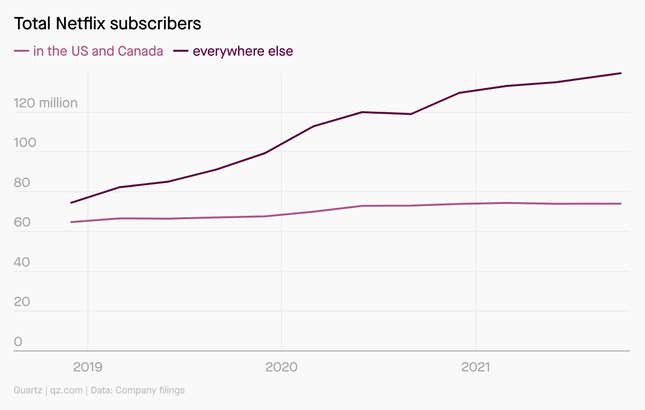Good morning, Quartz readers!
Was this newsletter forwarded to you? Sign up here. Forward to a friend who wants to visit every country.
Here’s what you need to know
China’s central bank cut rates for the first time in two years. It acted after GDP grew by more than 8% in 2021, but slowed down in the fourth quarter, with growth of just 4% compared to the same period in 2020.
Beijing imposed restrictions after discovering its first omicron case. Travelers to the host city of the Winter Olympics, which is just over two weeks away, must now test for covid within 72 hours of arrival.
A winter storm caused havoc in the US’s southeastern states. Hundreds of flights were canceled, and thousands of people left without power in Georgia, North Carolina, South Carolina and Florida.
The chairman of Credit Suisse quit over covid breaches. Antonio Horta-Osorio had only been in the role nine months, following a difficult period for the bank, but left after multiple instances of rule-breaking.
Walmart is planning its own cryptocurrency. US patent filings show the world’s largest retailer also wants to make and sell virtual goods, including NFTs.
Novak Djokovic finally left Australia. A turbulent couple of weeks for the Serbian tennis star ended with his deportation, with the government arguing his presence risked spreading anti-vaccine views.
What to watch for
What happens when renegades decide to dismantle traditional loci of power and create value where there was none before? Miami’s North American Bitcoin Conference, that’s what.
The three-day crypto extravaganza kicks off today, with speakers that include investor Mark Cuban and Miami mayor/bitcoin hype man Francis Suarez, plus dozens of events with titles like “Hashpower: The Next Great Commodity” and “The Revolution Will Not Be Centralized.” One lucky attendee will even win a ticket to space.
Bitcoin ❤️ Miami’s startup scene is a match made in heaven: Both are passion projects finally getting mainstream attention, both have gotten a boost during the pandemic, and it’s possible neither will exist in 100 years.
Netflix wants you to pay up
In an entertainment world dominated by at-home viewing, Netflix is hoping its prestige will justify a new $15.49 monthly price tag in the US—especially since its standard plan is now more expensive than HBO Max.
There’s no question Netflix is spending a boatload on content: $17 billion this year, to be exact. But the price bump also reflects Netflix’s need to squeeze more revenue out of North America, where subscriber growth is getting weaker. That conundrum leaves Netflix with an ambitious to-do list: Court larger audiences outside the US, continue the (expensive) quest for blockbuster franchises, and cultivate a reputation as the premier player in an increasingly crowded field.

Best companies for remote workers

One area where Netflix’s prestige is lacking: remote work, which its CEO has called a “pure negative.” Workers across industries see it differently: They report feeling more productive at home, and many would rather quit than be office-bound.
What’s your WFH experience? We’re ranking the Best Companies for Remote Workers. Submit your company to see if it makes the list.
Handpicked Quartz
⚡️ Russia will maintain its energy stranglehold on Europe for decades
💪 How powerful is your country’s passport?
🐶 Elon Musk announced Tesla will accept dogecoin as payment
🛴 Spin is pulling out of cities that won’t regulate e-scooters
🎤 How Africans and African-Americans can honor Martin Luther King
🌳 Japan’s new net-zero project will use more energy than it produces
Surprising discoveries
Who’s the “most famous face in China”? The country’s De Rucci mattress man has been named, but no one really knows who Timothy James Kingman is.
A Rhode Island man faked his own death to escape prosecution. Nicholas Alahverdian was found alive in Scotland after being hospitalized for covid-19.
Facebook patented a robotic eye. The eye is designed to “mate” with an animatronic head so it will “appear authentic to an observer.” Sure.
Trade in your FitBit for a FaceBit. Researchers are working on an N95-attachable device that can track your breathing and heart rate.
Before thoroughbred horses, there were kungas. About 4,500 years ago, the hybrid of a donkey and a Syrian wild ass was quite revered.
Our best wishes for a productive day. Send any news, comments, a De Rucci mattress, and a herd of kungas to hi@qz.com. Get the most out of Quartz by downloading our iOS app and becoming a member. Today’s Daily Brief was brought to you by Hasit Shah, Kira Bindrim, and Morgan Haefner.
